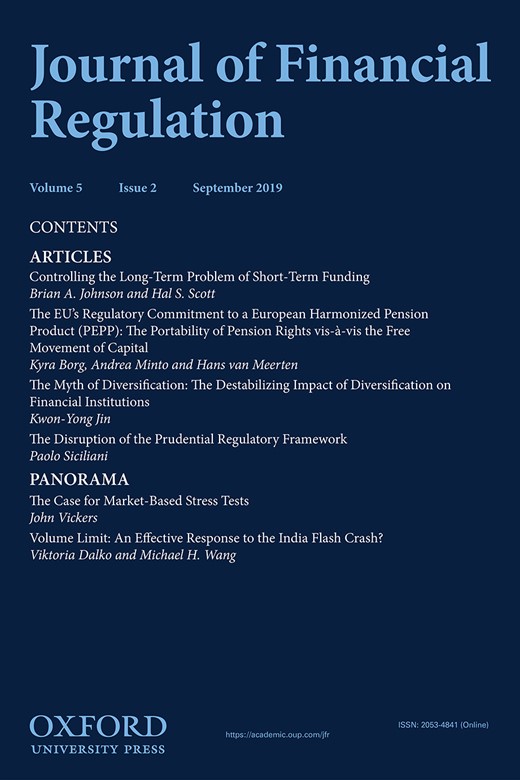-
Views
-
Cite
Cite
Brian A Johnson, Hal S Scott, Controlling the Long-Term Problem of Short-Term Funding, Journal of Financial Regulation, Volume 5, Issue 2, 1 September 2019, Pages 101–149, https://doi.org/10.1093/jfr/fjz004
Close - Share Icon Share
Abstract
While financial crises can be triggered by several causes, runs on short-term liabilities are at the heart of all financial crises, with the recent 2007–09 financial crisis being no exception. Given the unpredictability of crisis triggers and the overwhelming predictability of short-term funding’s role in financial crises, legislative and regulatory responses to the recent financial crisis should focus on the consequences of relying on short-term funding in the financial system. However, in addressing the problem of such funding, it is important to recognize the social benefits afforded by short-term liabilities and not simply the costs. To this end, this paper provides a brief overview of short-term funding in the U.S. financial system, while also highlighting the trade-off between the costs and benefits of short-term liabilities. The paper proceeds with an analysis of various proposals aimed at addressing the short-term funding issue.



